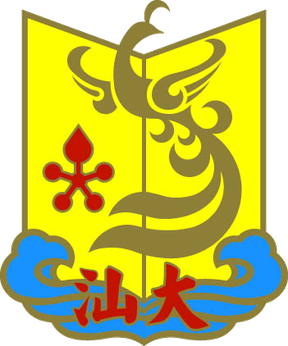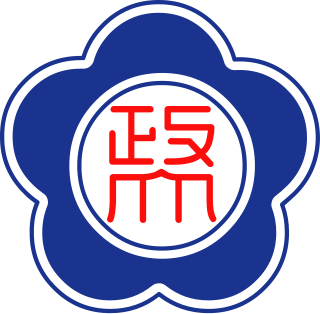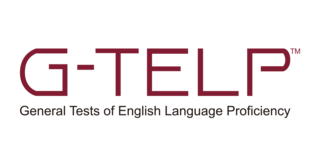Related Research Articles

Indian Institute of Technology Kanpur is a public institute of technology located in Kanpur, Uttar Pradesh, India. As an Indian Institute of Technology (IIT), it was declared an Institute of National Importance by the Government of India under the Institutes of Technology Act.

Indian Institute of Technology, Roorkee is a technical university located in Roorkee, Uttarakhand, India. It is the oldest engineering institution in India. It was founded as the College of Civil Engineering in 1847 during East India Company rule in India by James Thomason, the Lieutenant-Governor of the North-Western Provinces in which Roorkee was located; its purpose was to train officers and surveyors employed in the construction of the Ganges Canal. In 1854, after the completion of the canal and Thomason's death, it was renamed the Thomason College of Civil Engineering by Proby Cautley, the designer and projector of the canal. It was renamed University of Roorkee in 1949, and again renamed IIT Roorkee in 2001. The institution has 22 academic departments covering Engineering, Applied Sciences, Humanities & Social Sciences and Management programs with an emphasis on scientific and technological education and research.

Middle East Technical University is a public technical university located in Ankara, Turkey. The university emphasizes research and education in engineering and natural sciences, offering about 41 undergraduate programs within 5 faculties, 105 masters and 70 doctorate programs within 5 graduate schools. The main campus of METU spans an area of 11,100 acres (4,500 ha), comprising, in addition to academic and auxiliary facilities, a forest area of 7,500 acres (3,000 ha), and the natural Lake Eymir. METU has more than 120,000 alumni worldwide. The official language of instruction at METU is English.

Shantou University, is a university under the provincial Project 211 program in Shantou, Guangdong, was founded in 1981 with the approval of the State Council.

National Taiwan Normal University (NTNU) is a national comprehensive university in Taipei and New Taipei City, Taiwan.

National Chengchi University is a public research university in Taipei, Taiwan. The university is also considered as the earliest public service training facility of Taiwan. First established in Nanjing in 1927, the university was subsequently relocated to Taipei and resumed full operation in 1954 as the first re-established "National University" in Taiwan.
The educational system in Taiwan is the responsibility of the Ministry of Education. The system produces pupils with some of the highest test scores in the world, especially in mathematics and science. Former president Ma Ying-jeou announced in January 2011 that the government would begin the phased implementation of a twelve-year compulsory education program by 2014.
The Common European Framework of Reference for Languages: Learning, Teaching, Assessment, abbreviated in English as CEFR, CEF, or CEFRL, is a guideline used to describe achievements of learners of foreign languages across Europe and, increasingly, in other countries. The CEFR is also intended to make it easier for educational institutions and employers to evaluate the language qualifications of candidates for education admission or employment. Its main aim is to provide a method of learning, teaching, and assessing that applies to all languages in Europe.
Cambridge Assessment English or Cambridge English develops and produces Cambridge English Qualifications and the International English Language Testing System (IELTS). The organisation contributed to the development of the Common European Framework of Reference for Languages (CEFR), the standard used around the world to benchmark language skills, and its qualifications and tests are aligned with CEFR levels.

Institut d'études politiques de Bordeaux, also known as Sciences Po Bordeaux, is a French grande école located on the university campus of Pessac, Bordeaux. It is attached to the University of Bordeaux. Established in 1948, Sciences Po Bordeaux is one of the ten Institutes of Political Studies in France.

Tamkang University is a private university in Tamsui District, New Taipei City, Taiwan. It was founded in 1950 as a junior college of English. Today it is a comprehensive university with 11 colleges that serves nearly 25,000 students on four campuses.

The National Taiwan University of Science and Technology is a public university located in Taipei, Taiwan.

The Ministry of Education is the ministry of Taiwan responsible for incorporating educational policies and managing public schools and it oversees the educational administrative agencies of local governments.
The Test of Chinese as a Foreign Language is the Republic of China (Taiwan)'s standardized test of proficiency in ROC Standard Chinese for non-native speakers such as foreign students. It is administered by the Steering Committee for the Test Of Proficiency-Huayu (SC-TOP). The committee is under the direction of Taiwan's Ministry of Education. The test was formerly known as the TOP or Test Of Proficiency-Huayu.
The European Language Certificates are international standardised tests of ten languages.

The LudovikaUniversity of Public Service is a higher educational institution in Budapest, Hungary. Established in 2012, it is one of the youngest universities in Central and Eastern Europe; however, its faculties as former independent colleges look back much earlier.
The Examination for the Certificate in Competency in English (ECCE) is a high-intermediate level English language qualification that focuses on Level B2 of the Common European Framework of Reference for Languages (CEFR).
The Examination for the Certificate in Proficiency in English (ECPE) is an advanced level English language qualification that focuses on Level C2 of the Common European Framework of Reference for Languages (CEFR).

General Tests of English Language Proficiency (G-TELP) are English language tests, developed by the International Testing Services Center (ITSC) in 1985. They comprehensively evaluate the practical English use ability of test takers who do not speak English as their native language.

The Institut national du service public is a grande école based in Strasbourg, France. It is dedicated to the recruitment, initial training and continuing training of senior executives and civil servants of the state. It was created on 1 January 2022 to replace the École nationale d'administration (ENA), which was abolished on 31 December 2021 by French President Emmanuel Macron.
References
- ↑ Huang, Chuen-Teng (April 21, 2006). "To Develop an English Assessment Instrument for English Learners in Taiwan: Adopting Common European Framework of Reference for Languages (CEF)". National Changhua University of Education, Department of English. Retrieved 2011-11-26.
- ↑ "New English Test Announced". Taipei Times. February 9, 2007. Retrieved 2011-11-26.